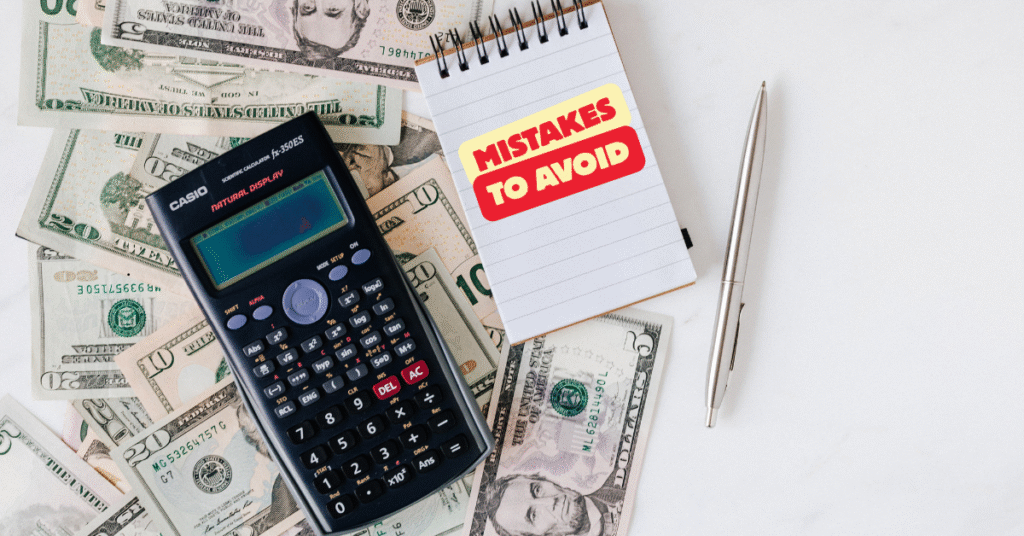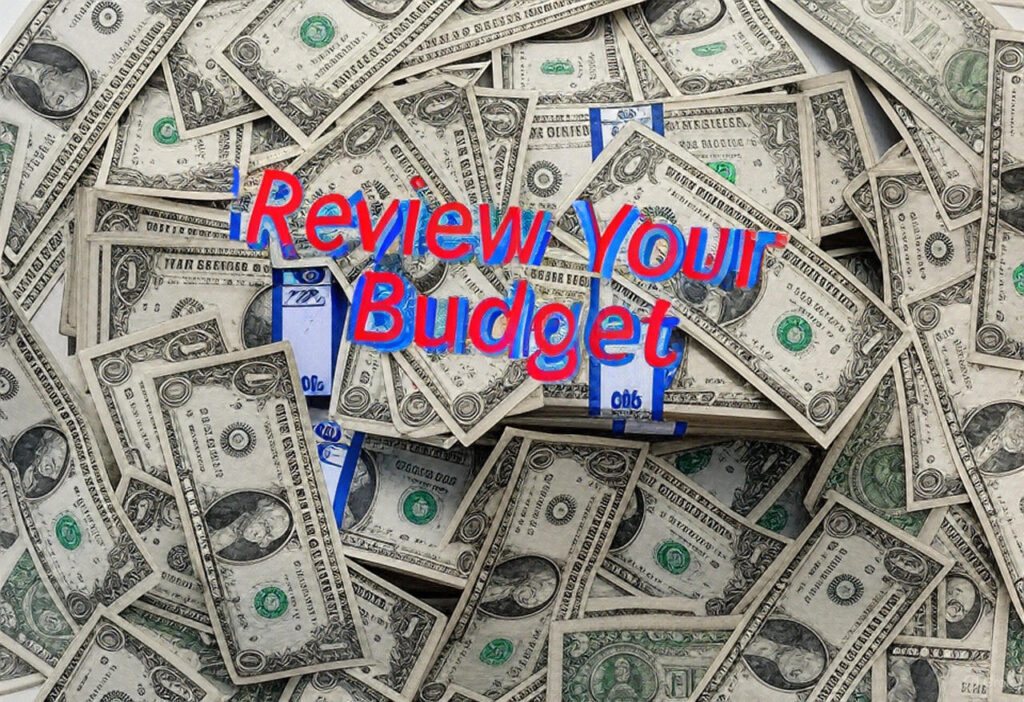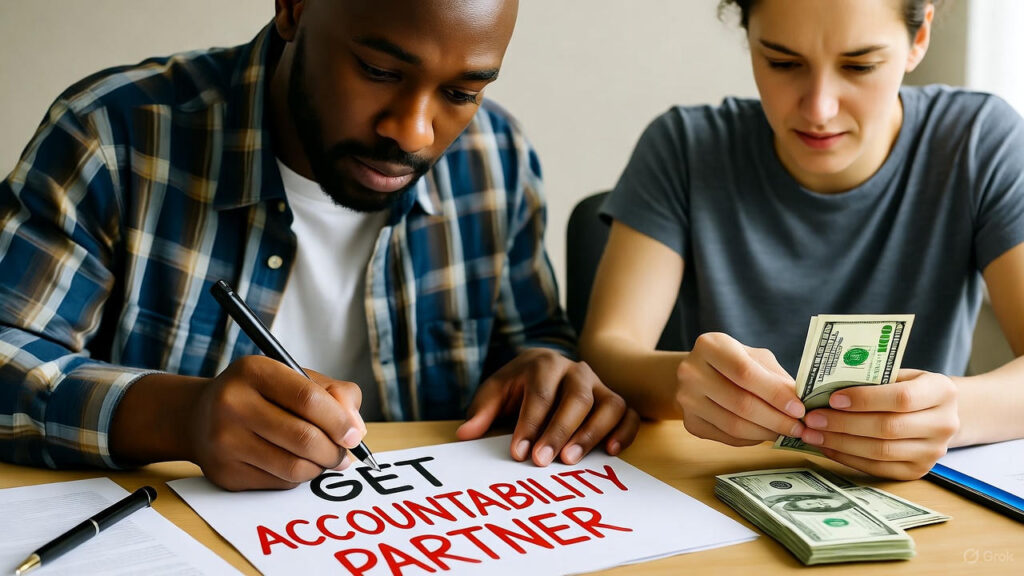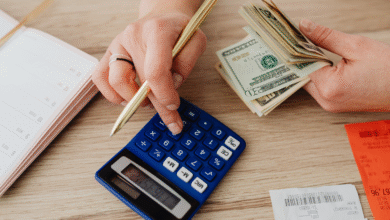How To Get Your Finances Back On Track

Look, I’m not gonna sugarcoat it, getting your finances messed up feels like you’re drowning in a pool of your own bad decisions. Been there, got the T-shirt, and trust me, it’s not a fashion statement you want to rock for long.
Here’s the thing: your money situation affects literally everything else in your life. Your stress levels? Through the roof. Your relationships? Strained. Your ability to sleep at night? Non-existent.
I’ve watched clients (and yeah, myself at one point) spiral because their bank account looked sadder than a Monday morning.
But here’s the good news, and I mean this, you can absolutely turn this ship around. I’ve got a master’s in financial management, and more importantly, I’ve been in the trenches helping real people fix real money problems.
So grab a coffee, get comfortable, and let’s talk about how to actually get your finances back on track without all that corporate jargon nonsense.
How Do I Get Myself Back On Track Financially?
First things first: you need to figure out what went wrong. And I don’t mean in a “let me beat myself up about it” kind of way. I mean genuinely understanding the root cause of your financial mess.
Think of it like being a financial detective. You can’t solve a mystery if you don’t know what you’re looking for, right? Maybe you’re drowning in credit card debt because your salary barely covers rent and groceries.
Or perhaps you’ve been treating your paycheck like Monopoly money and buying stuff you don’t need. FYI, we’ve all done that at some point 🙂
The psychological aspect here is crucial. Financial stress doesn’t just appear out of thin air; it’s usually a symptom of deeper behavioural patterns. Are you an emotional spender? Do you avoid checking your bank statements because ignorance feels safer than facing reality?
These patterns matter more than you think. Start by pulling up your bank statements from the past three months. I know, it’s painful. But you need to see where your money’s actually going versus where you think it’s going.
When I did this exercise myself years ago, I discovered I was spending $200 a month on food delivery. Two hundred dollars! For mediocre food that I could’ve made at home for $50.
Once you’ve identified your specific issues, you can create a targeted action plan. If your income is the problem, we’re talking side hustles or job hunting. If it’s spending, we need to address those habits.
And if it’s debt, we’re creating a strategic payoff plan that doesn’t make you want to cry every time you make a payment.
5 Signs Your Finances Are On Track
Ever wonder if you’re actually doing okay financially, or if you’re just fooling yourself? Let me break down the five major indicators that your money situation is solid.
These aren’t just theoretical checkboxes; they’re real benchmarks that separate financial stability from the “one emergency away from disaster” crowd.
1. You Have A Retirement Fund

Real talk: retirement planning should start yesterday. But if you’re actively contributing to a retirement fund right now, you’re already ahead of millions of people who are living paycheck to paycheck.
Here’s what I mean by “having” a retirement fund: you’re not just acknowledging it exists. You’re consistently putting money into it, even if it’s just $50 or $100 a month. The consistency matters more than the amount when you’re starting.
I’ve got a 32-year-old client who started with just $75 a month going into her 401(k). She felt embarrassed about how “small” that amount was. But guess what? After three years of consistent contributions, combined with employer matching, she’s sitting on nearly $8,000. That’s $8,000 she didn’t have before, and it’s growing.
The compound interest magic is real, folks. If you’re 25 and you put away $200 a month until you’re 65, assuming a conservative 7% return, you’re looking at over $500,000 at retirement.
Start at 35 with the same monthly contribution? You’re down to around $240,000. That decade costs you $260,000. Let that sink in.
But here’s the reality check: if you can’t afford to contribute anything to retirement right now because you’re struggling to pay rent, your finances aren’t on track. And that’s okay, acknowledging it is the first step to fixing it.
2. You Pay Bills In Advance
Paying bills in advance is like having a financial cushion that lets you breathe. When you’re living month-to-month, every bill due date feels like a countdown timer to disaster. But when you’ve got breathing room? Different ball game entirely.
I’m not saying you need to pay your rent six months in advance. But if you can pay next month’s utilities this month without sweating it, you’ve achieved a level of financial stability most people dream about.
This means you’ve got positive cash flow, your income exceeds your expenses by enough that you’re not doing financial gymnastics to keep the lights on.
Let me paint you a picture from my own experience. Three years ago, I was timing my credit card payments down to the hour before payday because I literally didn’t have the money until that direct deposit hit. Exhausting doesn’t even begin to cover it.
Now? I pay my bills on the first of the month regardless of when they’re due, and I don’t even think about it. That shift represents a fundamental change in financial health. You’ve moved from reactive (oh crap, the bill is due tomorrow) to proactive (bills are handled, what’s next?).
It’s not just about having money; it’s about having control over your financial life.
3. Your Credit Card Is Paid Off Every Month

Credit cards are useful tools when you use them right. They’re financial weapons of mass destruction when you don’t. If you’re paying off your full balance every month, you’re using them right. If you’re carrying a balance and paying interest? That’s your finances telling you something’s wrong.
The math on credit card interest is brutal. Let’s say you’ve got a $5,000 balance on a card with 18% APR (pretty standard, unfortunately). If you’re only making minimum payments, you’re paying roughly $1,500 in interest over time. That’s $1,500 that could’ve gone into your emergency fund, your retirement, or literally anything else more productive.
I worked with a couple last year who had $23,000 spread across four credit cards. They thought they were managing it because they made all their minimum payments on time. But they were haemorrhaging $350 a month just in interest charges. That’s $4,200 a year burning up for absolutely no benefit.
Here’s the standard: if you can’t pay off your credit card in full when the statement arrives, you’re spending money you don’t have. Period. That’s not financial stability, that’s borrowing from your future self, and your future self is gonna be pissed about it.
4. You Have An Emergency Fund
Life doesn’t care about your budget. Your car will break down. Your kid will get sick. Your company might lay you off. These aren’t “if” scenarios, they’re “when” scenarios. An emergency fund is the difference between handling these situations like an adult and having a complete financial meltdown.
The standard advice is 3-6 months of expenses saved up. And yeah, that’s the goal. But let’s be real, if you’re starting from zero, that goal feels impossible. So let’s break it down into achievable milestones.
First milestone: $1,000. This covers most minor emergencies, a broken phone, a small medical copay, or a basic car repair. This is your “I’m not going into debt over small stuff” fund.
Second milestone: One month of expenses. Calculate what you need to survive for 30 days: rent, utilities, food, and minimum debt payments. This is your “I lost my job and I’m not immediately homeless” fund.
Final milestone: 3-6 months of expenses. This is your full emergency fund. This is financial security. This means you can weather job loss, major medical expenses, or other significant life disruptions without destroying everything you’ve built.
IMO, having this fund isn’t just about the money, it’s about psychological safety. You sleep better. You make better decisions because you’re not operating from a place of fear. You can turn down a toxic job because you’re not desperate. That’s what financial stability actually feels like.
5. Your Net Worth Keeps Increasing
Net worth is simple: assets minus liabilities. What you own minus what you owe. If that number goes up each year, you’re winning. If it’s stagnant or declining, you’ve got work to do.
Most people never calculate their net worth. They just have a vague sense of whether they’re “doing okay” or not. But that’s like trying to lose weight without ever stepping on a scale. You need the actual data.
Here’s how you calculate it: Add up everything you own that has value, your bank accounts, investment accounts, retirement funds, the current value of your car, and any property. Then subtract everything you owe: credit card balances, student loans, car loans, mortgages, and personal loans.
I calculate mine every January 1st, and it’s become my favourite financial ritual. Last year, I saw a 22% increase from the previous year. That wasn’t because I suddenly became a genius; it was because I consistently saved, paid down debt, and let my investments grow. The compound effect of good financial habits is no joke.
Your net worth should increase even in years when your income doesn’t. How? You’re paying down debt (reducing liabilities) and you’re saving/investing (increasing assets). Even if your salary stays the same, your net worth should climb.
10 Ways To Get Your Finances Back On Track
Alright, let’s get into the practical stuff. These aren’t theoretical concepts; these are actionable strategies I’ve used personally and recommended to countless clients. Some will be easy, some will hurt a little, but all of them work if you actually do them.
1. Learn From Your Mistakes

Here’s something nobody talks about enough: your financial mistakes are data. They’re not moral failures or proof that you’re bad with money. They’re information about what doesn’t work for you.
I used to beat myself up about a terrible car purchase I made in my late twenties. I bought a car I couldn’t afford because I wanted to impress… honestly, I don’t even know who. My ego? Random strangers on the highway? Looking back, it was stupid. But that mistake taught me more about the psychology of spending than any textbook ever could.
When you make a financial mistake, sit with it. Journal about it if that’s your thing. Ask yourself: What was I feeling when I made this decision? What need was I trying to meet? What would I do differently next time?
A client of mine blew through a $15,000 inheritance in six months on random purchases she barely remembered. Instead of just feeling guilty about it, we analysed every purchase. Turned out, most of the spending happened during a rough patch in her relationship. She was using shopping as emotional regulation. Understanding that pattern meant we could address the real issue, her coping mechanisms, not just the symptom.
Financial therapy is becoming a real field, and there’s a reason for that. Money behaviour is psychology in action. The more you understand your personal patterns, the more power you have to change them.
2. Track Your Habits
You can’t change what you don’t acknowledge. Tracking your habits, both good and bad, gives you objective data about your financial behaviour. And I’m not talking about some complicated system that requires a PhD to maintain. I’m talking about simple, sustainable tracking.
Dozens of apps make this easy. Mint, YNAB (You Need A Budget), PocketGuard, pick one and actually use it. Link your accounts, categorise your spending, and review it weekly.
But here’s where it gets interesting: track the behaviours behind the spending. If you notice you drop $50 at Target every Sunday afternoon, dig deeper. Are you bored? Stressed? Rewarding yourself for surviving the week? The habit isn’t just “going to Target”, it’s using shopping as entertainment or stress relief.
I keep a stupid-simple habit tracker on my phone. Every day I log whether I:
- Checked my bank balance
- Stayed within my daily spending limit
- Contributed to savings
- Made a purchase I regretted
That last one is crucial. When I see a pattern of regretful purchases, I can trace it back to specific triggers. Usually, it’s exhaustion combined with mindless phone scrolling. Instagram ads are literally designed to exploit tired brains, and knowing that helps me avoid the trap.
Create rewards for maintaining good habits. Hit your savings goal for three months straight? Treat yourself to something reasonable. Paid off a credit card? Celebrate it (within budget, obviously). Positive reinforcement works better than punishment when you’re trying to rewire financial behaviour.
3. Build And Review Your Budget

Budgeting gets a bad rap because most people do it wrong. They create these rigid, unrealistic spending plans that make them feel like they’re on a financial diet. Then they “cheat” on the budget, feel guilty, and abandon the whole thing.
A good budget isn’t restrictive; it’s reflective. It should accurately represent your real life, not some fantasy version where you never buy coffee or have any fun. The best budget is the one you’ll actually stick to.
Start with the 50/30/20 rule as a framework: 50% needs, 30% wants, 20% savings and debt repayment. But adjust these percentages based on your reality. Living in an expensive city where rent alone is 40% of your income? Your numbers will look different, and that’s okay.
Here’s what I do: I review my budget every single month. Not just glance at it, actually review it. I look at what I planned versus what I spent. If I consistently blow past my entertainment budget, I either need to increase that category or figure out why I’m spending so much.
Last month, I noticed I was $80 over budget on groceries. Instead of just shrugging it off, I dug into my receipts. Turns out I’d been buying a bunch of speciality ingredients for recipes I never made. That’s $80 of food that rotted in my fridge. The solution? Meal plan before shopping, not after.
Use tools like EveryDollar or even a simple Google Sheets template. The format matters less than the habit of actually using it.
4. Stick To A Schedule
Good habits die without structure. You need a schedule that embeds your financial behaviours into your routine. Otherwise, you’re relying on motivation, and motivation is a fickle friend.
I have automated transfers set up for every payday. $500 goes to savings, $200 goes to my investment account, and $100 goes to my “fun money” account. I don’t think about it; it just happens. Automation removes the opportunity to make bad decisions.
But beyond automation, schedule your financial tasks:
- First Friday of the month: Review budget and adjust categories
- 15th of the month: Check progress on financial goals
- Last Sunday of the month: Calculate net worth and update tracking spreadsheet
It sounds corporate and boring, but this is what financial stability looks like in practice. You’re not constantly scrambling; you’ve got systems that work in the background while you live your life.
One of my clients struggled with retirement savings until we scheduled it like a doctor’s appointment. Every other Friday at 2 PM, she got a calendar reminder to log into her 401(k) and review her contributions. Six months later, she’d increased her contribution rate twice and added $3,000 to her retirement.
What gets scheduled gets done. That’s not motivational poster nonsense, that’s behavioural science.
5. Get An Accountability Partner

Money is weirdly taboo to talk about. We’ll discuss our relationships, our health problems, even our therapy sessions, but asking someone to hold us accountable for our spending? That feels vulnerable.
But here’s the truth: accountability partnerships work. Studies show you’re 65% more likely to achieve a goal if you commit to someone else. And your likelihood jumps to 95% if you have scheduled check-ins with that person.
Your accountability partner doesn’t need to be a financial expert. They just need to be someone who:
- You trust enough to be honest with
- Will actually call you out when you’re making bad choices
- Understands your financial goals
My accountability partner is my best friend. Every month, we have a 20-minute call where we review our financial wins and struggles. She doesn’t judge me when I admit I impulse-bought concert tickets I couldn’t really afford, but she does ask me the hard questions: “Did that purchase align with your goals? What could you have done differently?”
Sometimes the accountability is preventative. I’ve literally texted her from a store: “I’m about to spend $200 on something I don’t need. Talk me down.” And she does. That text saves me money because I know I’ll have to admit it on our next call if I buy it anyway.
Find someone who’s also working on their finances. Make it reciprocal. You hold them accountable, they hold you accountable. It’s amazing how much easier financial discipline becomes when you’re not doing it alone.
6. Focus On Your Strengths
Financial advice is full of “shoulds.” You should save 20% of your income. You should have six months of expenses saved. You should max out your 401(k). But what if you literally can’t do those things right now?
Focus on what you can control, not what financial gurus say you should do. This isn’t about lowering your standards; it’s about meeting yourself where you are and building from there.
Can’t save 20%? Save 5%. Can’t pay off all your debt at once? Pick the smallest one and knock it out. Can’t afford a new car? Buy a reliable used one and maintain it well. These aren’t failures, they’re realistic steps toward financial stability.
I worked with a teacher making $42,000 a year who felt like a failure because all the personal finance advice assumed she had money to invest. We reframed it: What could she control? She could pack lunch instead of buying it. She could refinance her student loans to a lower rate. She could start a small side hustle tutoring twice a month.
Within a year, she’d paid off $4,000 in credit card debt and saved $2,500. Not because she suddenly started earning more (though the tutoring helped), but because she focused on the variables she could actually influence.
There’s incredible power in accepting your current reality without shame. You’re not behind, you’re exactly where you are. The only question is: what’s your next right step from here?
7. Learn About Money
Financial literacy isn’t taught in most schools, which is insane when you think about it. We’re expected to navigate taxes, mortgages, investments, and retirement planning with zero formal education on any of it. No wonder so many people struggle.
The good news? You can educate yourself, and most of it is free. You don’t need an expensive course or a financial advisor (yet). You need curiosity and consistent learning.
Start with the basics:
- Personal finance blogs: There are hundreds of quality blogs breaking down complex topics into digestible content. You’re reading one right now.
- Books: “The Psychology of Money” by Morgan Housel, “I Will Teach You To Be Rich” by Ramit Sethi, and “Your Money or Your Life” by Vicki Robin are all excellent starting points.
- Podcasts: “The Money Guy Show,” “ChooseFI,” and “Afford Anything” are all free and packed with actionable advice.
- YouTube: Channels like Graham Stephan, Andrei Jikh, and The Financial Diet make financial education entertaining.
But don’t just consume content, apply it. I read or listen to something about money every single day. Sometimes it’s a 10-minute podcast episode. Sometimes it’s a chapter in a book. The consistency matters more than the volume.
Last year, I learned about tax-loss harvesting from a podcast episode. It sounded complicated, so I researched it more. Then I applied it to my investment account and saved $400 on my taxes. That one piece of knowledge literally paid me.
The financial services industry makes money from your ignorance. The more you know, the less you’ll get taken advantage of by bad advice, predatory loans, or unnecessary fees. Knowledge is literally money in this case.
8. Pay Attention To The Little Things
There’s this myth that financial success is about big wins, landing a high-paying job, getting an inheritance, and making a killing in the stock market. But real financial stability is built on small, consistent actions that compound over time.
That $5 daily coffee? Over a year, that’s $1,825. Could you invest that instead? Sure. Should you? Maybe. But here’s the more important question: Are you aware of where your small purchases are going?
I’m not telling you to deprive yourself of all small pleasures. I’m telling you to be intentional about them. If that daily coffee brings you genuine joy and you’ve budgeted for it, great. But if you’re buying it out of habit while complaining you can’t save money, we’ve got a problem.
The “latte factor” gets mocked a lot in personal finance circles, but the principle is sound. Small leaks sink ships. I had a gym membership I wasn’t using for eight months. That’s $240 gone for zero benefit. A subscription service I forgot about for a year? Another $120.
Do this exercise: Pull up your bank statement right now. Go through every single purchase from last month. Highlight anything that was:
- Impulse
- Unnecessary
- Forgotten about afterwards
- Less than $20
Add those up. That’s your “small stuff” leak. For most people, it’s $200-500 per month. Per month! That’s $2,400-6,000 a year that just… disappeared.
Apps like Truebill or Trim can automatically find and cancel subscriptions you’re not using. Takes five minutes and can save you hundreds.
9. Be Realistic With Your Plan
Aggressive goals feel motivating… until they’re not. Then they feel impossible, you give up, and you’re worse off than when you started. I’ve watched this cycle destroy countless people’s financial momentum.
Your financial plan needs to be challenging enough to create growth but realistic enough to be sustainable. That’s a delicate balance, and it’s different for everyone.
Let’s talk retirement, since that’s where people often get unrealistic. The FIRE (Financial Independence, Retire Early) movement has convinced some people they should retire at 35. For a tiny percentage of high earners who live extremely frugally, that’s possible. For most people? It’s a fantasy.
A realistic retirement goal: Save 15% of your income starting in your thirties, and you can probably retire comfortably in your mid-sixties. Is that as sexy as retiring at 35? No. Is it achievable for most people? Yes.
Same with debt payoff. I see plans all the time: “I’m going to pay off $50,000 in debt in one year!” Sounds great. But if you’re making $60,000 a year, the math literally doesn’t work unless you plan to live on nothing and stop paying for housing and food.
A realistic debt payoff plan looks at your actual income, subtracts your actual necessary expenses, and allocates what’s left to debt while maintaining a small emergency fund. It might take three years instead of one, but you’ll actually complete it instead of giving up after two months.
I help clients create “minimum viable progress” plans. What’s the smallest amount of progress you can make while still maintaining your sanity and quality of life? Start there. You can always scale up later.
10. Always Remember Your Values
Here’s where personal finance gets personal. Your values determine your financial priorities, and your financial priorities determine where your money goes. If those things don’t align, you’ll always feel frustrated with your finances.
What matters to you? Like, really matters? For some people, it’s travel. For others, it’s security. Some value experiences over possessions. Others value building a legacy for their kids. None of these is wrong; they’re just different.
Your budget should reflect your values. If you value travel but you’ve budgeted $0 for trips while spending $300 a month on clothes you barely wear, your spending doesn’t match your values. That’s why you feel unsatisfied even when you have money.
I value freedom and flexibility above almost everything else. So my financial plan prioritises building savings and investments that give me options. I don’t care about driving a nice car; I drive a 10-year-old Honda that runs fine. But I will spend money on quality coffee beans and a gym membership because those things matter to my daily quality of life.
Your values also dictate your non-negotiables. What won’t you compromise on, even to save money? For me, it’s mental health resources and quality food. I won’t cheap out on therapy or nutrition, even during tight months. Those are values-based priorities.
Self-discipline becomes way easier when it’s tied to values. You’re not depriving yourself, you’re choosing to spend on what matters and cutting what doesn’t. That’s not sacrifice; that’s alignment.
Final Thoughts
Getting your finances on track isn’t about becoming someone new. It’s about accepting where you are and taking consistent steps forward. No judgment, just progress.
These strategies aren’t magic or secret. They’re simple principles repeated over time. The real “secret” is staying committed even when it’s boring.
Start with one change this week and master it. You’ll mess up, but keep going; your future self is depending on today’s choices. Make them count.








